| 기인하다 | 세부 |
|---|---|
| 고양이 | K108942P |
| 상품명 | Anti-ALPP/ALPG/ALPI antibody |
| Source | Rabbit |
| Isotype | IgG |
| Species reactivity | 인간, 생쥐 |
| Swiss Prot | P05187/P10696/P09923 |
| Gene ID | 250/251/248 |
| Calculated MW | 57/58kDa |
| Observed MW | 68kDa |
| 정화 | Affinity purification |
| Tested applications | WB, IHC |
| Recommended dilution | WB 1:2000-5000, IHC 1:50-200 |
| WB Positive sample | MCF7 |
| IHC Positive sample | Human testis cancer |
| Subcellular location | 세포질 |
| Immunogen | A synthetic peptide of Human ALPP/ALPG/ALPI |
| 저장 | Shipped at 4 ℃. Upon delivery, aliquot and store at -20 ℃ |
배경:
ALPP (Alkaline phosphatase placental type; also SEAP, PALP-1 and ALP) a 66-68 kDa glycoprotein member of the alkaline phosphatase family of molecules. It is principally expressed by 2nd and 3rd trimester synctiotrophoblasts and tumor cells, and represents one of four alkaline phosphatase isozymes. Experimentally, it cleaves phosphate monoesters into alcohol and phosphate. Human ALPP is synthesized as a 535 amino acid (AA) preproprecursor. It contains a 22 aa signal sequence, ㅏ 484 mature region (AA 23-506), 그리고 29 aa C-terminal propeptide that is cleaved to generate a GPI linkage at Asp506. The ALPP gene is highly allelic and may generate three potential splice variants that involve the signal sequence. The ALPP enzyme utilizes one Mg and two Zn ions, and functions as either a homodimer, or a heterodimer with the related Intestinal (ALPI) and Germ cell (GCAP) family members on the cell surface. ALPP is reported to oligomerize under certain conditions. Over aa 23-506, human ALPP shares 96% 그리고 77% aa identity with chimpazeee ALPP and mouse embryonic-type alkaline phosphatase, 각기. It also shares 88% 그리고 98% aa identity with IAP and GCAP, 각기. Over aa 23-506, human ALPP shares 86% aa identity with human ALPI.
Verified picture
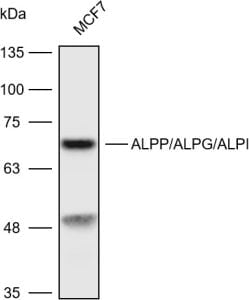
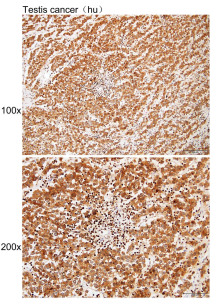
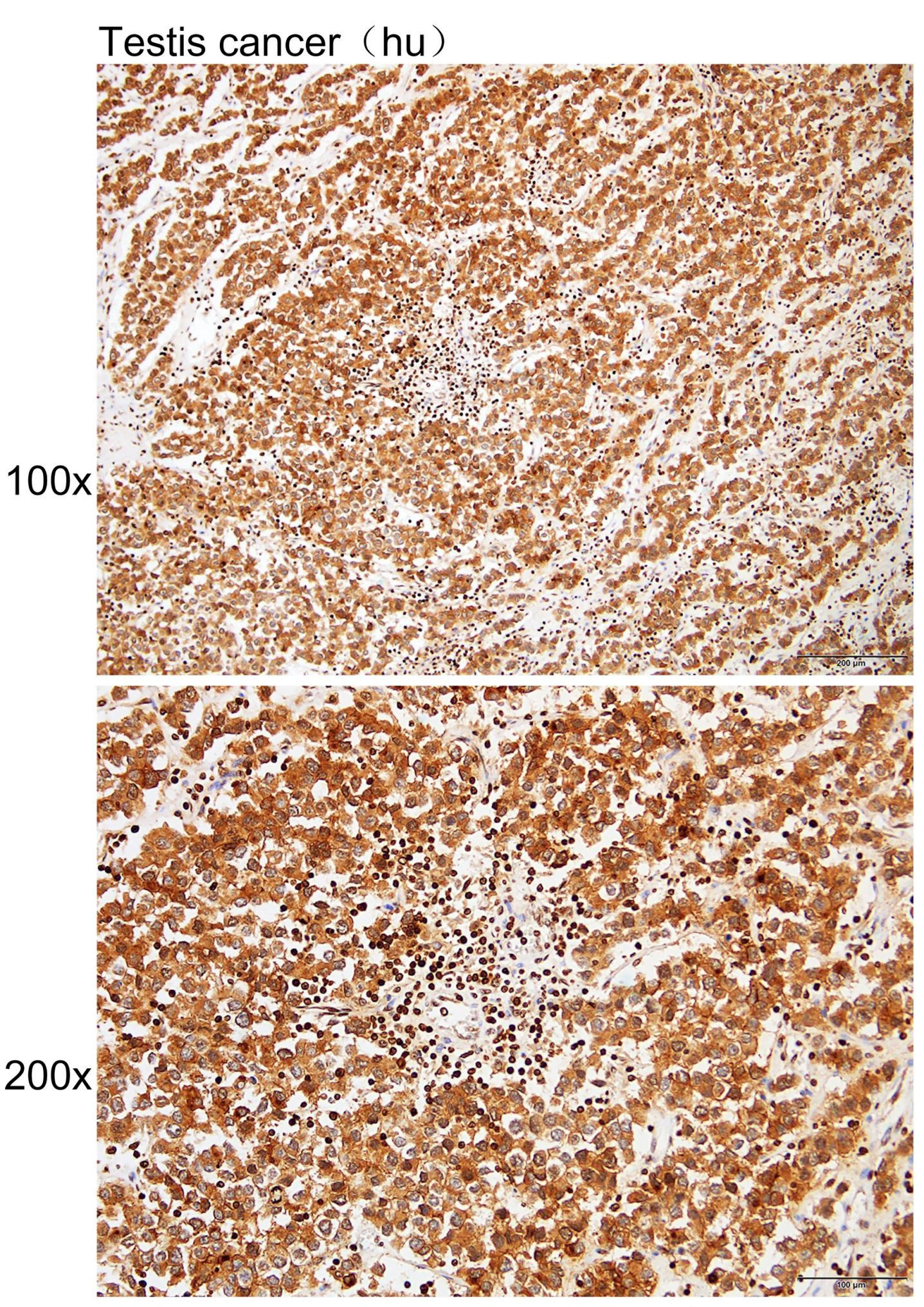
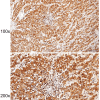
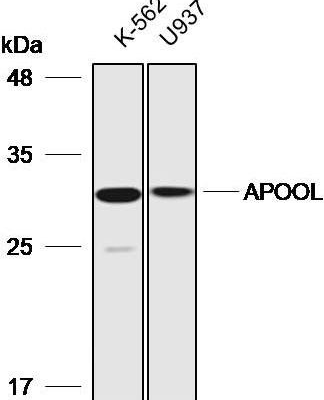
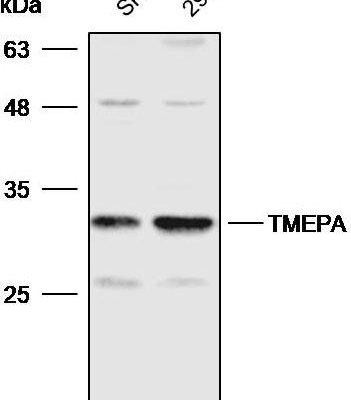
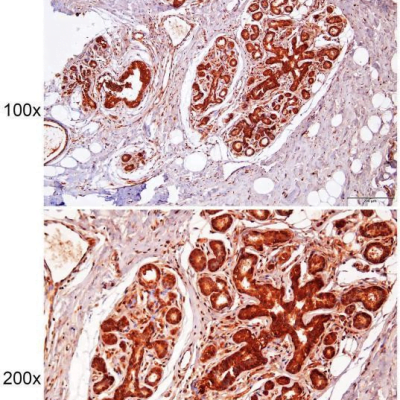
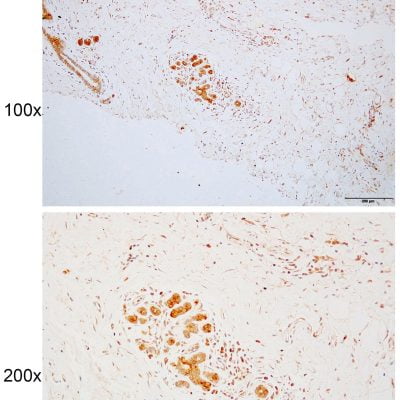
상품평
아직 상품평이 없습니다.